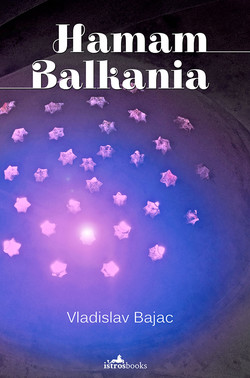Читать книгу Hamam Balkania - Vladislav Bajac - Страница 13
На сайте Литреса книга снята с продажи.
ОглавлениеWhen writing a book with at least a partial background of historical facts, it is almost impossible to avoid mystification, accidental though it might be. For example, when I thought through about all the coincidences that occurred as I wrote this book, it turned out that I started writing my novel about Mehmed-pasha Sokollu at the precise moment marking five-hundred years since the birth of his ‘first half’, that is Bajica Sokolović, in 1505. I thought to myself, well alright, I will incidentally be the single individual who will celebrate such an important anniversary, which passed with only the minimum of public interest.
Visiting for a while in Turkey in that jubilee year, I also did not notice that anyone paid any particular attention to the anniversary, either. It was as if this unique opportunity was given to me to subtly mark the occasion by writing about it, at first for myself, and later for the general public. Because, by the time this book is published, the anniversary will no longer be timely, in fact it won’t even exist. Why, indeed, even as I write this, the time has (already!) run out. Thus, a celebratory mood ought to be kept under control or should at least be hidden by coincidence – a fortunate turn of events that it was overshadowed by another celebration – the coming of the New Year.
A party turned into a commemoration.
An anniversary replaced by New Year.
Mehmed-pasha disguised as Santa Claus!
A true possibility that seems like a joke. Cynical humour created by circumstances rather than the writer’s talent. Like when a writer works without an outline and yet ends up with a novel without substance.
The big question is: what is coincidence in writing? The writer loves to displace, invent, augment, to multiply and then divide, organise, borrow... but above all he loves to intertwine. And when he does, then everything is possible. That is why his possible guilt for incidental (mis)deeds of which he is not even aware can be forgiven like the transgressions of a child. First of all, because those (mis)deeds occur accidentally and incidentally; they were not the goal but are simply there without forethought. Secondly, because their consequences can hardly be so dramatic that they are irreparable. And even if they are irreparable, they are not far-reaching. Thirdly, because the basic idea still remains as the centre of attention – the misdeeds are concomitant. Finally, does any one really take a writer seriously and at his word? That is another additional reason, if not also a justification, for why he is allowed to intertwine things so easily. And not to be held responsible.
Here is an example of such a (mis)deed: in the chapters that are supposed to be dealing with the present (like this one), at least for now, I keep having conversations with myself! Is that good or bad? Perhaps in the end I will realise that it is, after all, good for the book, although I doubt it at the moment. Why don’t I allow the heroes to head down their paths, to – as they say – develop? Well, perhaps it is not their time. And on the other hand... it so happens that I am one of those heroes (the one with the initials V.B.). Am I not developing as a character through this very same dialogue with myself? Hasn’t the reader begun quite clearly to make certain conclusions about him (me)? I mean, the reader should be drawing certain conclusions. If they don’t draw them, who will?
